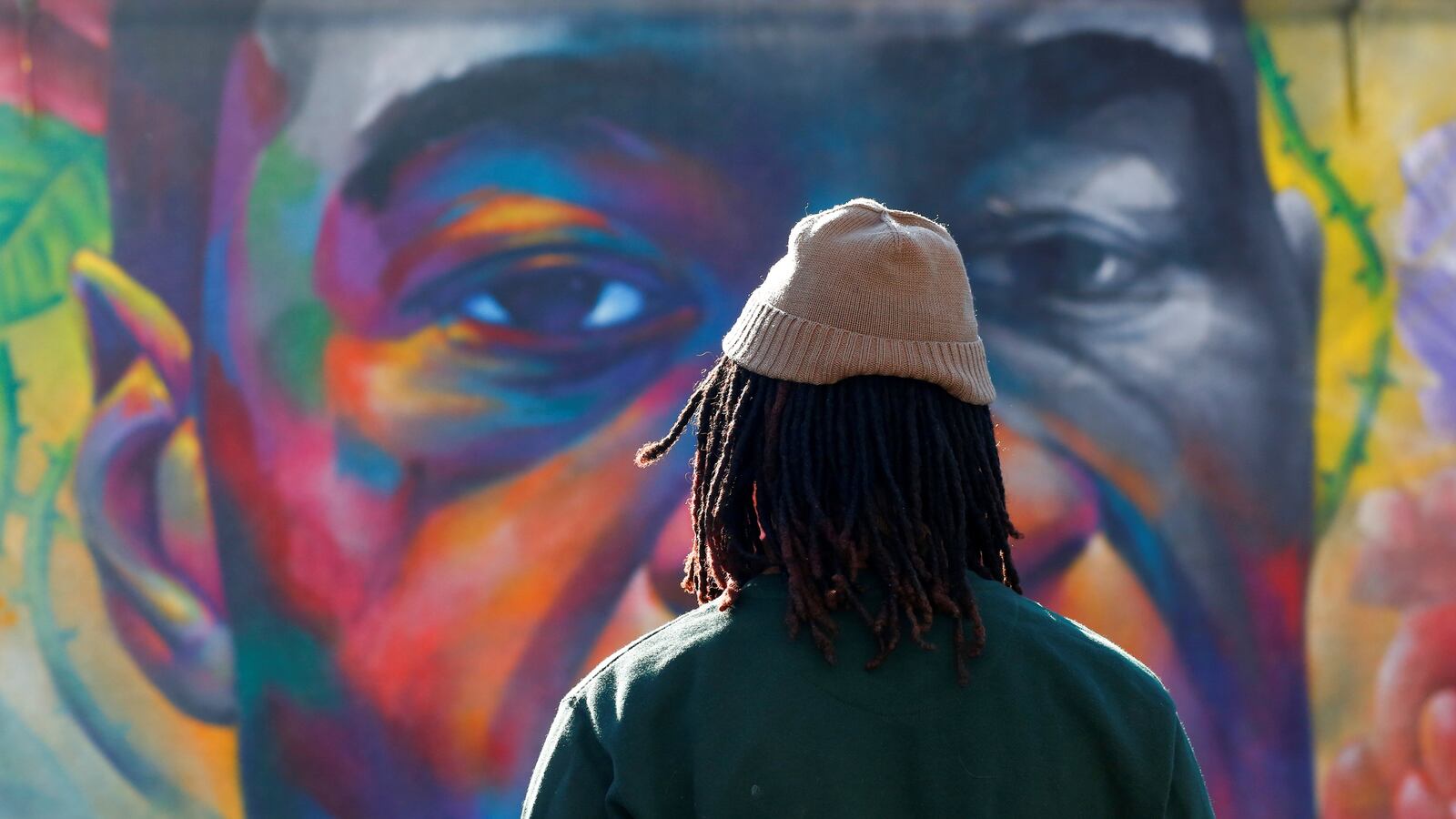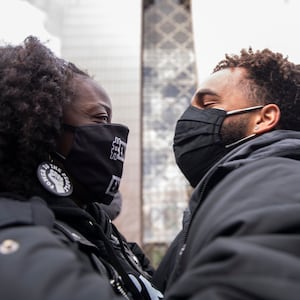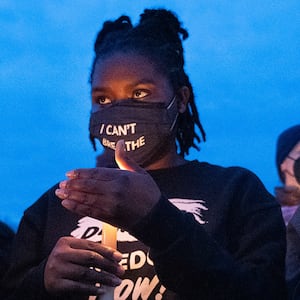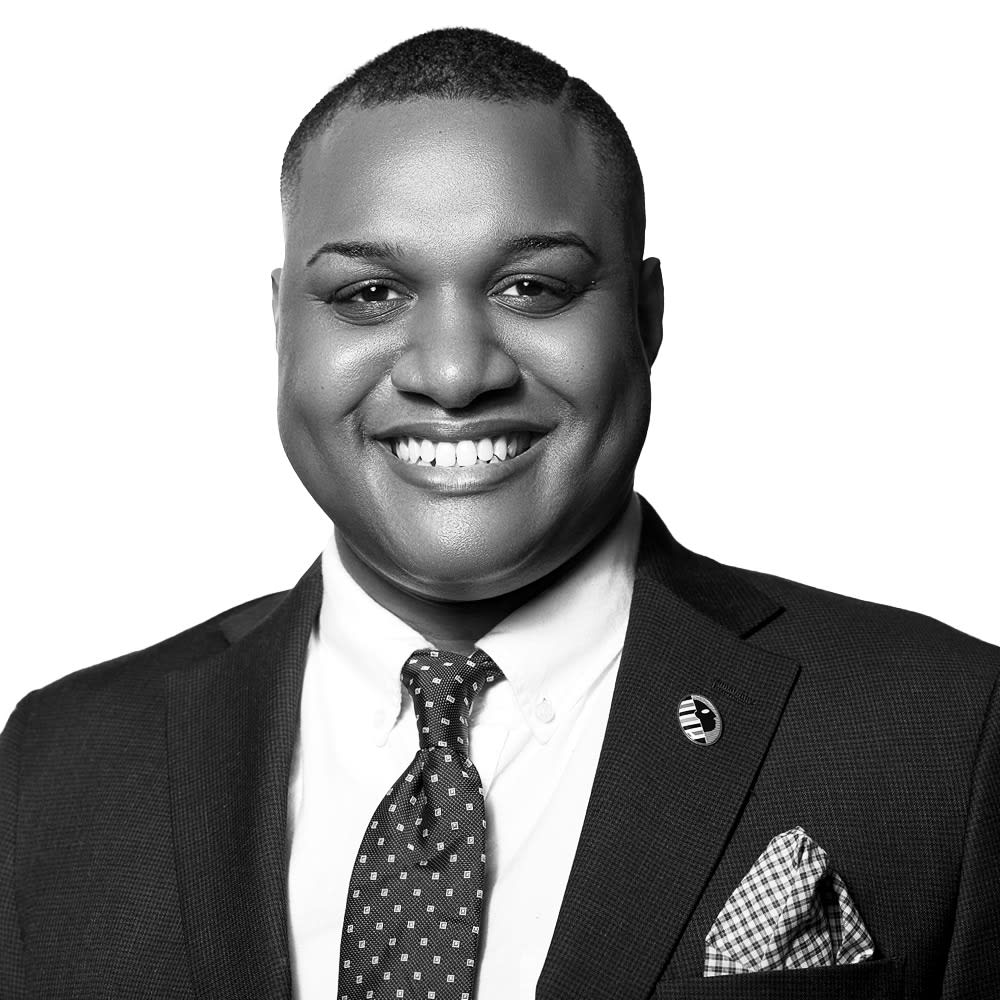The moment Derek Chauvin was found guilty on three counts for murdering George Floyd, white people and corporations started delivering their performative reactions.
“I can breathe,” the Los Vegas Raiders tweeted out. “And for now, a nation can breathe again,” tweeted commentator and former Obama adviser David Axelrod. “We must remember Mr. Floyd and the change his death has spurred in the U.S. consciousness,” the BlueCross BlueShield Association tweeted out, adding that “Blue Cross Blue Shield companies are committed to doing the hard work moving forward.” But the most cringeworthy moment came from House Speaker Nancy Pelosi, who thanked Floyd for his “sacrifice” during a press conference with the Congressional Black Caucus. “Thank you George Floyd for sacrificing your life for justice,” Pelosi said moments after Chavin’s guilty verdict. “Because of you and because of thousands, millions of people around the world who came out for justice, your name will always be synonymous with justice.”
If you’d been living under a rock since May, you would have thought that Floyd was a martyr who was killed for his belief in racial justice instead of a man who’d been murdered by a police officer. Following Pelosi's logic, one would think that this Black father made a deliberate choice to lie down and be kneeled on for 9 minutes and 29 seconds so the world could witness his death and understand it as a necessary evil for the greater cause. In other words, Pelosi wants us to think that George Floyd was like Jesus Christ: someone who chose to die or accepted his death to redeem society’s sins.
This is not how any of this fucking works. Floyd was murdered by a cop who devalued his life. He didn’t wake up that morning to sacrifice himself; he was a man who begged for mercy by calling out for his deceased mother as Chauvin cut off his breathing. This was an unnecessary, needless death, one that Floyd didn’t choose for himself. To basically thank Floyd for being murdered is to adamantly misunderstand what caused his death in the first place.
The performative “I can breathe now” remarks once again put the burden on Black people to save everyone else. Why must Black people’s pain be the catalyst for the world to wake up? This mere fact that such a surprise verdict would inspire others to finally voice such relief reveals how broken our criminal justice system actually is. As a Black man, I still can’t breathe knowing that Chauvin was an exception to the rule—one that still continues to set cops who kill unarmed Black people free far more often than not.
A Black man was murdered in cold blood on camera and in front of witnesses and the nation was still planning riot safety protocols in the event of a not guilty verdict. Where is the justice in that?
Like Breonna Taylor, Trayvon Martin, Sandra Bland, Eric Garner, Tamir Rice, Tony McDade, Oscar Grant, Sean Bell, and the countless other nameless, faceless Black lives that have been taken away too soon, George Floyd didn’t choose to die to reignite a movement. Black people who are extrajudicially killed by the police aren’t martyrs for the cause, but individuals who were victims of a system that continues to fail Black people daily.
Just moments after Chauvin’s verdict, 16-year-old Ma’Khia Bryant was shot and killed by an officer in Columbus, Ohio. Does anyone think that she wanted her life taken away from her so that her name “will always be synonymous with justice?”
Hearing the remarks of Pelosi and others makes me ask what kind of vanity fair do people really think Black death produces? Large crowds of people protesting racial injustice isn’t anything to glamorize or fawn over—it’s a necessary action taken after endless breaches of public trust. Floyd’s death struck a nerve because of how grotesque his murder was.
Those who have for so long turned a blind eye to such injustices should spend less time performing flattery and wokeness and instead step back and reflect on their own roles in this. Instead of thanking Black people for their trauma, like thanking soldiers for their service, you can ask yourself: What am I going to sacrifice as the beneficiary of a racist, unjust system? Start with your own white privilege, and take it from there.



